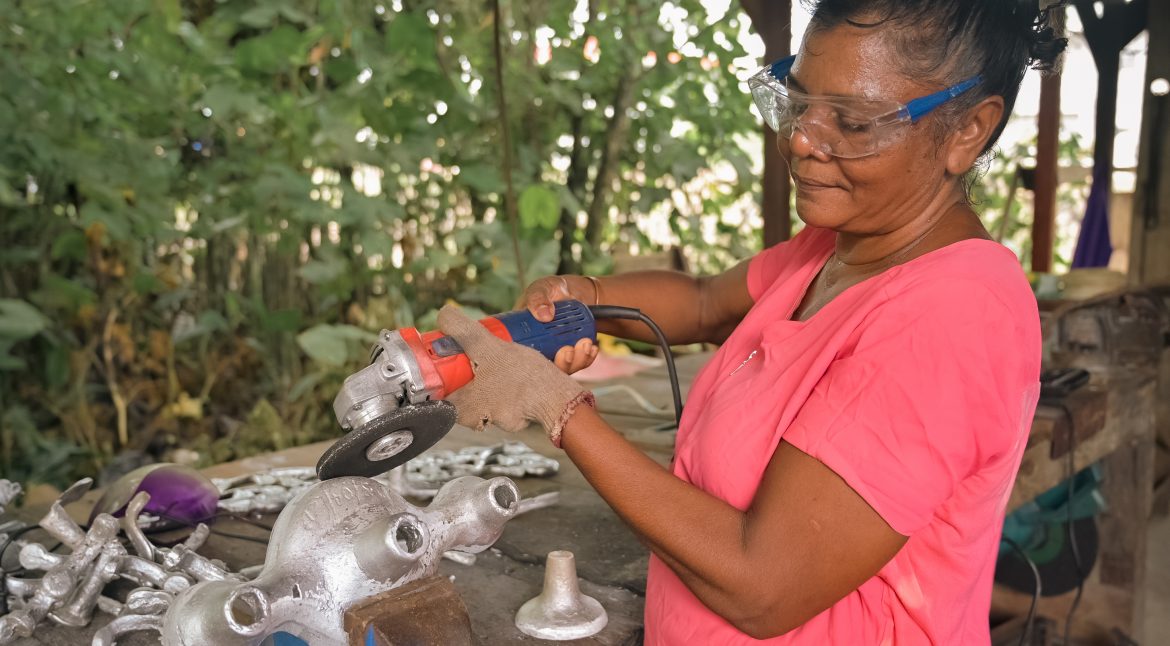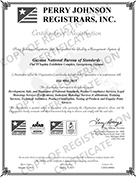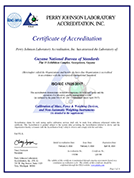The red Equal Arm scales are among the most common types of measuring instruments used in trade. Commonly found in markets and shops across the country, the instrument is used by many Vendors and Shopkeepers to sell groceries, fruits, vegetables, meats and more.
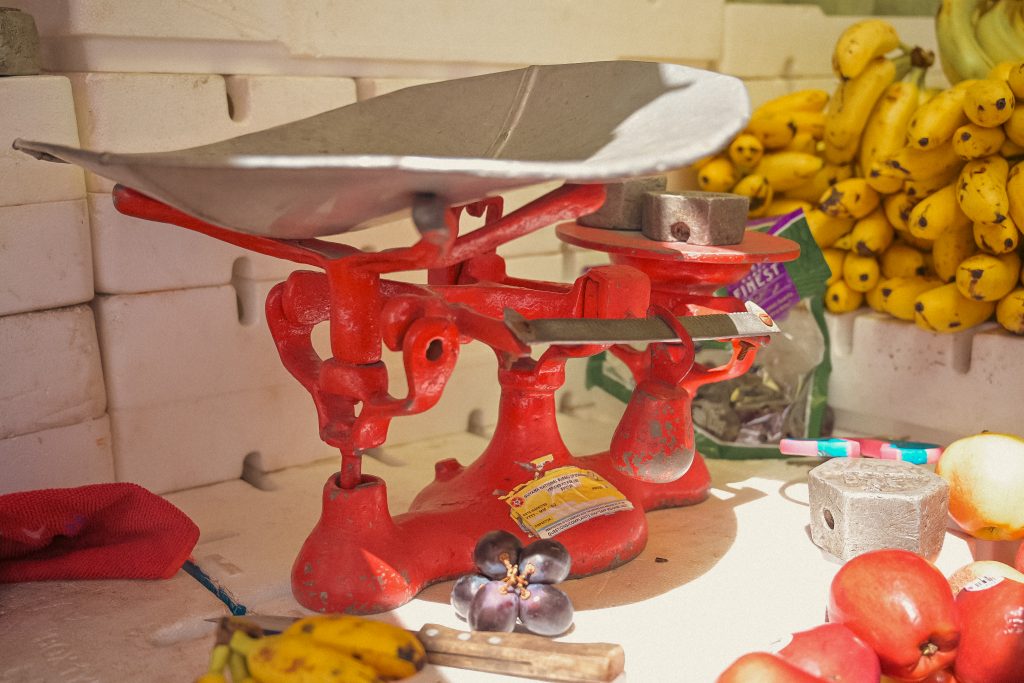
The Guyana National Bureau of Standards (GNBS) currently work along with two local manufacturers who supply the local market with the red equal arm scales along with their three complementary masses. Ms. Dularie Sookhoo is one of those manufacturers, and she started her trade twenty-six (26) years ago on the Essequibo Coast, Region Two (Pomeroon- Supenaam). Now residing in Parfaite Harmonie on the West Bank of Demerara (WBD), she recalled that she learnt the skill from an older man from whom she purchased metal pots and pans for resale.
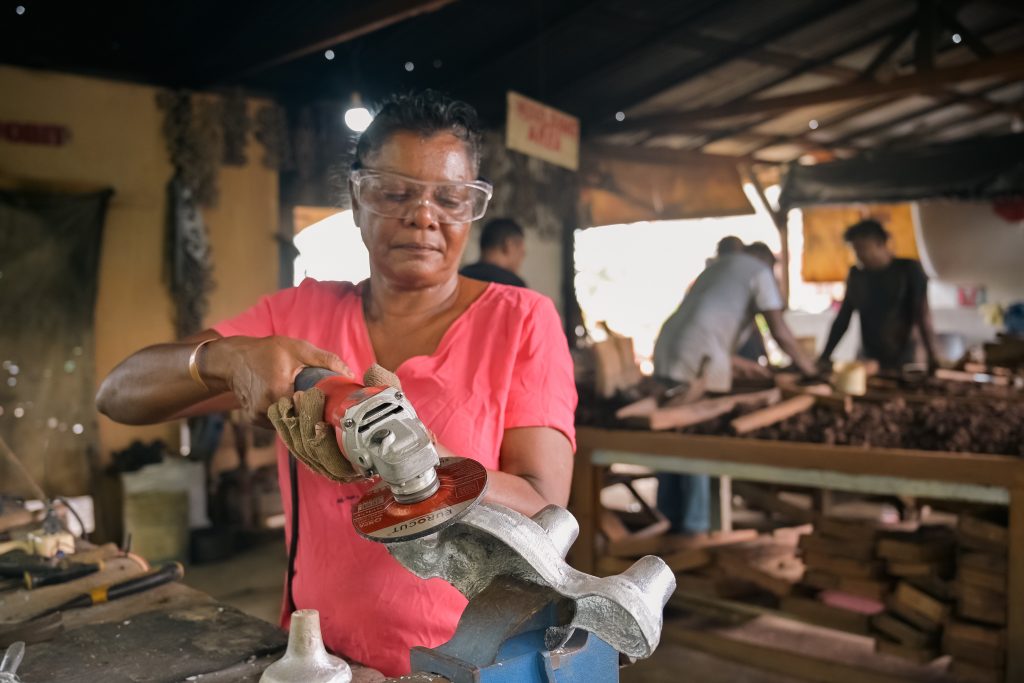
“There was a man who I bought items from but even after paying an advance, the items would not be available, so I began looking at what he does and eventually learnt to make the products myself,” she said.
Using the ancient sand moulding technique for metal casting, the businesswoman first started making Karahis and Tawas used to make rotis before making the red Equal Arm scales. “We fabricated some designs and commenced making the scales since there was a market for them (scales). Back then, we used to make the pound (imperial) scales before we were informed that we need to produce scales in metric units of measurement, and this was started.” Guyana adopted the Metric System as the legal system of measurement in 2002 conforming to the International System (SI) of Units and the GNBS as the National Measurement Institute (NMI) is responsible for the promotion of the system.
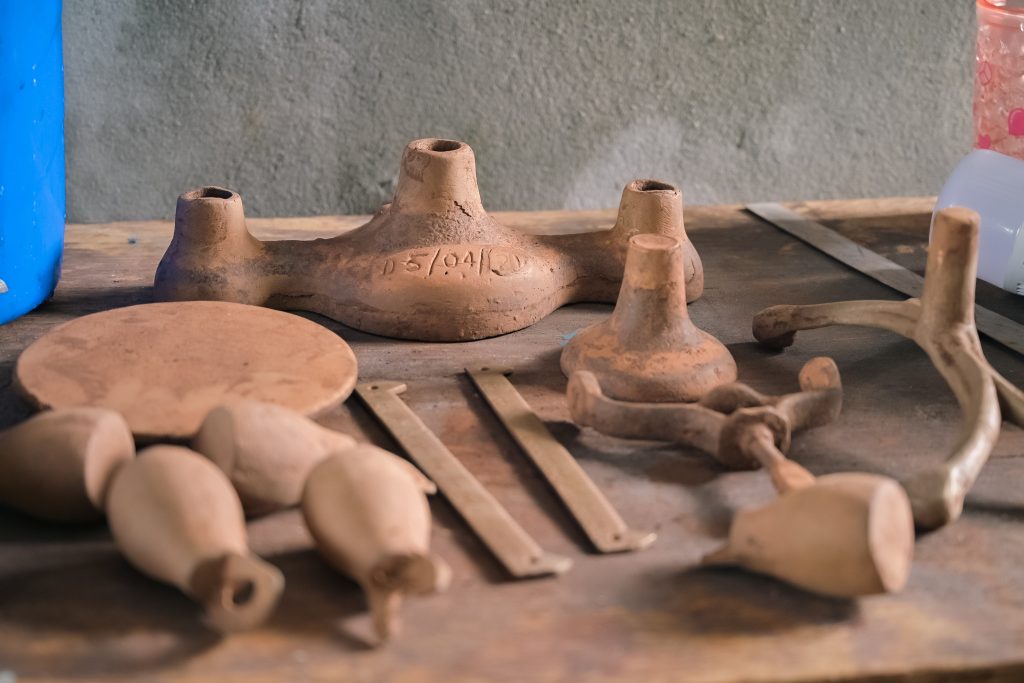
With the assistance from one of her sons, Dularie purchase scrap metals from citizens across the country which she then melts to produce the scales. The metal is melted over a fireplace and then poured into a mould made from sand. The sand moulding technique is commonly used for small-scale production since it is cost effective and can be done in a short period of time with reusable patterns.
The mould comprises of a wooden box rammed with sand. It has two parts – the top half called the ‘cope’ and the bottom half called the ‘drag’. The process entails placing a standard of the intended design into the ‘drag’ after which the sand is rammed around it to leave an imprint. Water is poured to cement the design in place. The cope is placed on top of the design to acquire the imprint from the top of the design after which that is removed to allow for the removal of the standard parts leaving the exterior contours in the sand. The melted metal is poured into holes at the top of the mould and left to solidify to form the new parts.
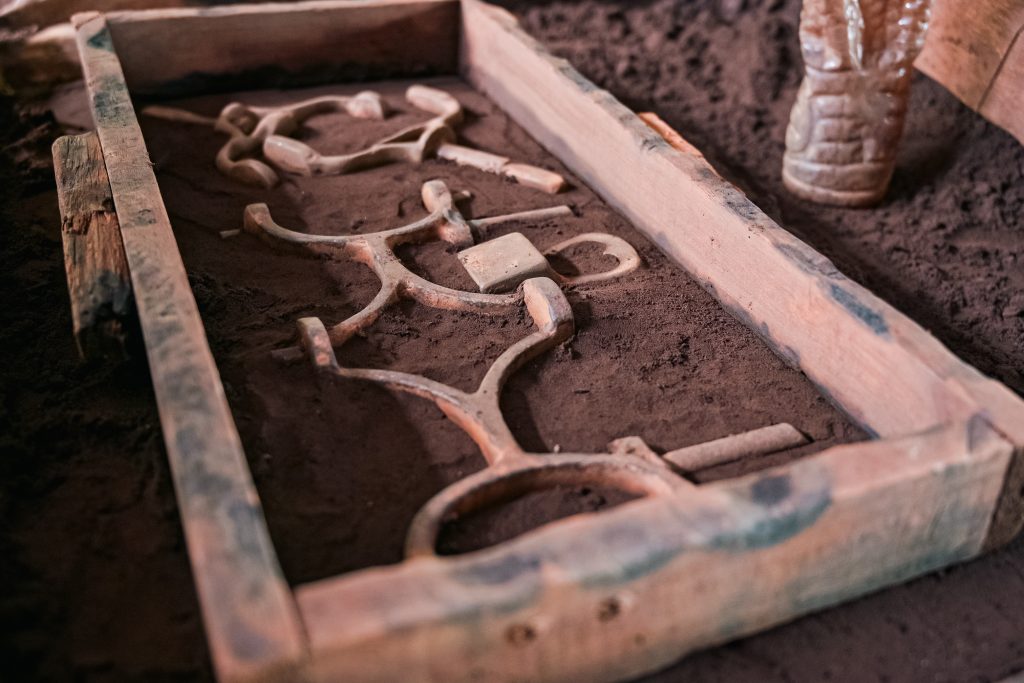
However, given the method used, defects are unavoidable and require cleaning before assembling to ensure that they comply with the National Standard GYS 180: 1998 – “Specification for Equal Arm scales (4Kg)” which specifies that the scales shall have a smooth finish while the base must rest solidly on a flat level surface without any shake or pivot.
The red Equal Arm scales are completed by assembling different parts. These are the arm or pan rest made up of four sprangs to support the pan, a balance indicator, the base, the bushing or pivot support, chassis, the cup, which is a hollow section below the platform, a draw bar with graduation from 0-500 grams with increments of 10g, forks, knives and the masses.
To ensure there is compliance with the National Standard, the business premise is inspected on an annual basis by the GNBS for compliance with quality requirements before a license is issued to operate. The businesswoman pointed out that working with the GNBS has been a pleasant experience. She said the Inspectors are always accommodating and helps her to comply with the standard, adding confidence in the final product manufactured.
Dularie produces ten (10) to fifteen (15) scales per month. Thereafter, all new scales and masses are verified and stamped by the GNBS before they are offered for sale to ensure they are accurate and reliable measurements. After being put into use for the first time, all scales and masses must be subsequently verified by the GNBS during the verification periods. The GNBS conducts this exercise twice yearly (during the periods January – March and July – September). For this year, verification exercise commenced on January 16 and comes to an end on March 31. Thereafter, surveillance inspections will then commence.
In 2023, a total of 7,757 Scales and 11,584 Masses were verified. The Bureau encourages vendors and shop keepers to get their measuring instruments verified for the first half of 2024. For more information, please visit the gnbsgy.org website or contact GNBS on telephone numbers: 219-0064-66, the GNBS hotline number 219-0069 or WhatsApp us on 692-4627.

